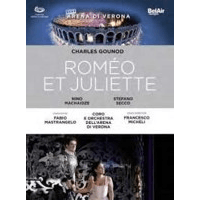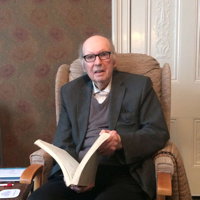 CENTRAL ENGLAND: Mike Wheeler's concert reviews from Nottingham and Derbyshire feature high profile artists on the UK circuit - often quite early on their tours.
CENTRAL ENGLAND: Mike Wheeler's concert reviews from Nottingham and Derbyshire feature high profile artists on the UK circuit - often quite early on their tours.
When I'm Sixty-Four
GIUSEPPE PENNISI visits the Spoleto Festival
The Spoleto Festival has turned sixty-four and reached, so to speak, the normal retirement age in Italy. Its name is still 'Festival of the two worlds' (meaning Italy and the United States) but the participation of the American artistic-cultural community has been almost non-existent for at least fifteen years, during which collaboration has been with France, Belgium and the United Kingdom. For several years, its difficulties have not been financial (as in the first five decades) but related to its place in the panorama of Italian and European summer festivals. It is a multidisciplinary festival, like that of Salzburg, but in Italy, the Ravenna Festival is now considered the counterpart of the major Austrian Festival: it has two rich sessions (summer and autumn) with almost only new productions and debuts. In the beautiful city of Spoleto, there is an autumn festival: that of the Teatro Lirico Sperimentale. For decades proposals have been formulated of a 'federation' between the two institutions: there would be distinct artistic direction but coordination of activities and some common functions - administration and communication. The authorities never considered these proposals. Two years ago, I explored them in an essay published by the Italian quarterly Nuova Antologia.
In addition to these long-term determinants, there are those caused by the pandemic. The festival has a new artistic direction. Retirement or not depends on the course that this artistic direction will take. This edition has a programming largely determined by the health emergency: therefore, a lot of music (from classical to contemporary, to pop, but not operas), modern ballet (with music on recorded tape), plays without almost any contribution from the young American artistic world. It is worth remembering that, before the pandemic, young American artists held, almost at the same time, a festival in nearby Arezzo - I remember an admirable L'incoronazione di Poppea - and snubbed the Umbrian town. It is desirable that, after the pandemic, collaborations with young American festivals will be re-established to give an original feature to the two Spoleto summer weeks and a link to the Festival's roots. This need not necessarily be a collaboration with Tanglewood but with young and imaginative experiences such as those in Annandale-upon-Hudson in New York State or in Savannah in Georgia.
In my view, festivals must have originality, with rare performances and debuts which, if not worldwide, are at least national. Classical Music Daily readers know that in Ravenna in two and a half days, thanks to the efficient press service, I followed five performances including two national premieres and a rarity. In Spoleto, over two days, I listened to the inaugural concert and a chamber concert.
I start this article with the second concert on 26 June 2021, even if it was performed in front of less than twenty people. (There were forty authorized seats according with the public health regulations.) There were no program notes. Musicians of the Budapest Festival Orchestra presented an anthology - four pieces - of little-known music of what is called 'the Historical Twentieth Century', an event that, in my opinion, would have deserved more attention precisely because it was a real festival event. The lack of program notes seemed to me to be a sign of disrespect towards the audience and especially the artists.
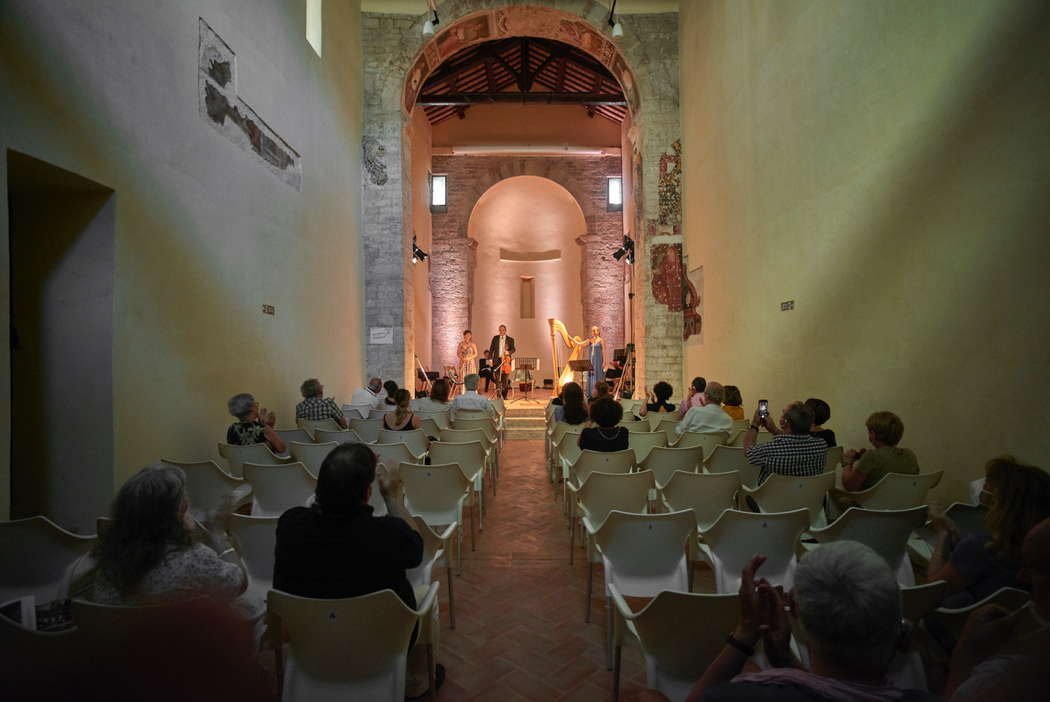
A scene from the concert in Chiesa di Sant'Agata. Photo © 2021 Giovanni Hanninen
In the small medieval Church of Sant'Agata, the concert began with the Duo Concertante by Krzysztof Penderecki; composed in 2010, thus a late work by the Polish composer. It lasts six minutes. It is a very intense dialogue between violin and double bass; Märia Gäl-Tomäsi and Zsolt Fejérväri stressed the dramatic tones.
Reinhold Glière, born in Ukraine to German and Polish parents (and with Belgian ancestry) is best known for his monumental operas and ballets that earned him various Stalin Prizes and medals of Lenin's Order. The eight very short pieces performed by Märia Gäl-Tomäsi and Gabriella Liptai belong to the period before the Russian Revolution: it is a delightful 'duet' (as named by the composer himself, unlike the title attributed to the piece in the billboard). It is dated 1909 and full of nuances and of Mittle-European taste. It would also have deserved more attention because recordings are rare and far between.
Another rarity is the Belgian Eugene Ysaÿe's Sonata in A minor for two violins. It shows what is called Ysaÿe's 'rubato', a characteristic of the composer. 'Whenever he stole time from one note, he faithfully paid it back within four bars', said the conductor Sir Henry Wood, allowing his accompanist to maintain strict tempo under his free cantilena. This kind of 'rubato' fits the description of Frédéric Chopin's 'rubato'. Ysaÿe was the first, and maybe the only one, to actually put it into practice. An exercise in virtuosity by the two violinists Janos Pilz and Eszter Lestäk-Bedő.
Finally, the Sonata No 2 for flute (Gabriella Pivon), viola (Gäbor Sipos) and harp (Agnes Polőnyi) by Debussy is elegant and refined. Sincere applause from the few listeners. This was a real festival concert.
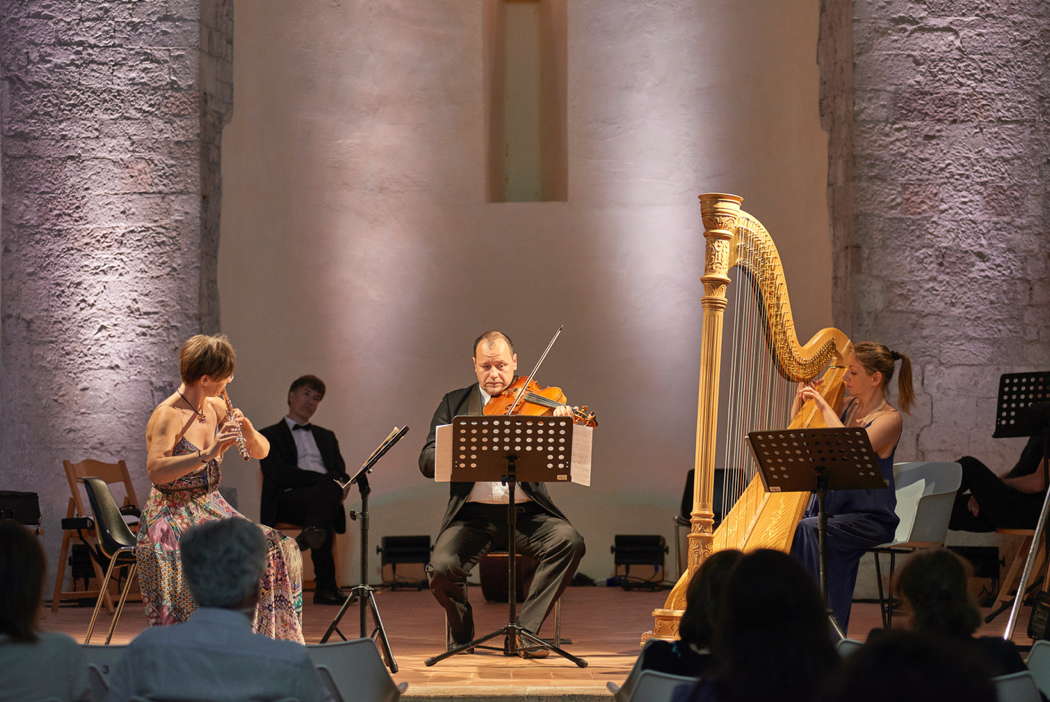
Performing Debussy in the Chiesa di Sant'Agata at the Spoleto Festival. Photo © 2021 Giovanni Hanninen
The inaugural concert in Piazza Duomo on 26 June had a great press review. It included a program of French music of the twentieth century performed by the Budapest Festival Orchestra conducted by Iván Fischer; after the warm applause of the audience, he offered, as a tribute to Italy and to the city of Spoleto: the symphony of Rossini's L'Italiana in Algeri. A good idea was to start the concert at dusk, without waiting for the night, and to give up the usual 'orchestral shell' so that the magnificent façade of the Duomo could be the setting of the concert, shining even more thanks to skilled lighting.
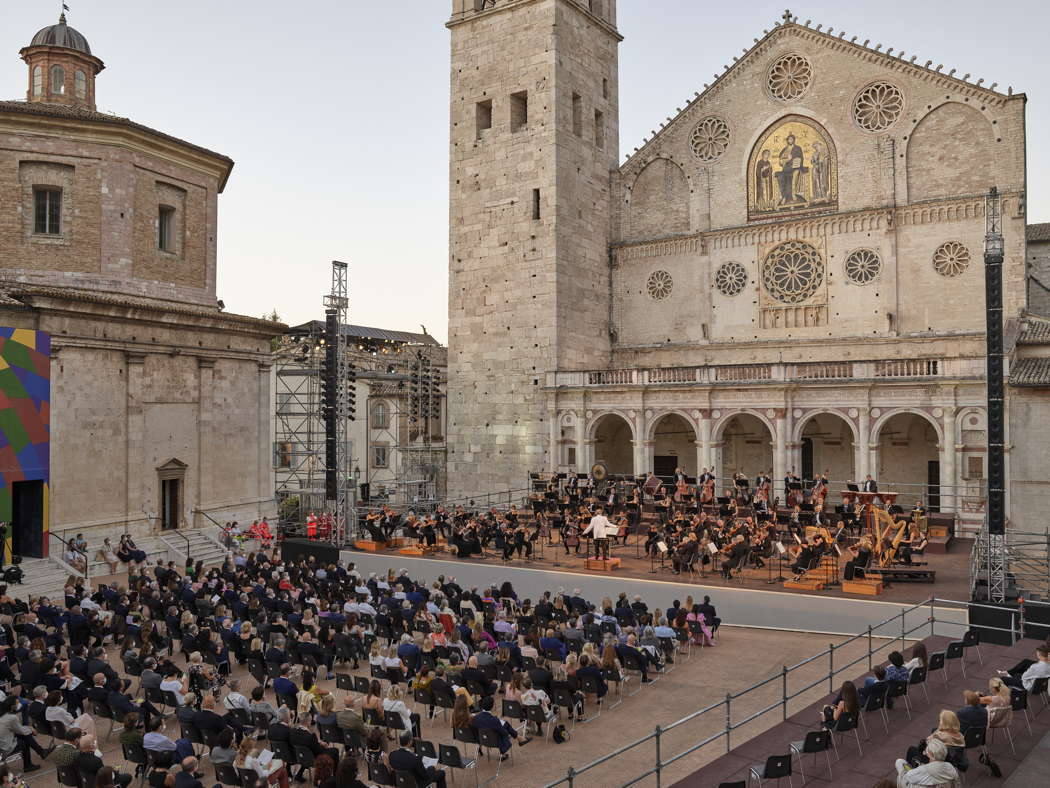
Iván Fischer and the Budapest Festival Orchestra at the Spoleto Festival. Photo © 2021 Giovanni Hanninen
The program included music from the late nineteenth and early twentieth centuries. It centred on two exponents of that group Les Six, who intended to innovate the French music scene - Milhaud and Ravel - and the 'heretic' and older Satie elected to be their patron. Satie, however appreciated in the French cultural and musical world, remained to a large extent self-taught and the precursor of musical developments of later decades of the century.
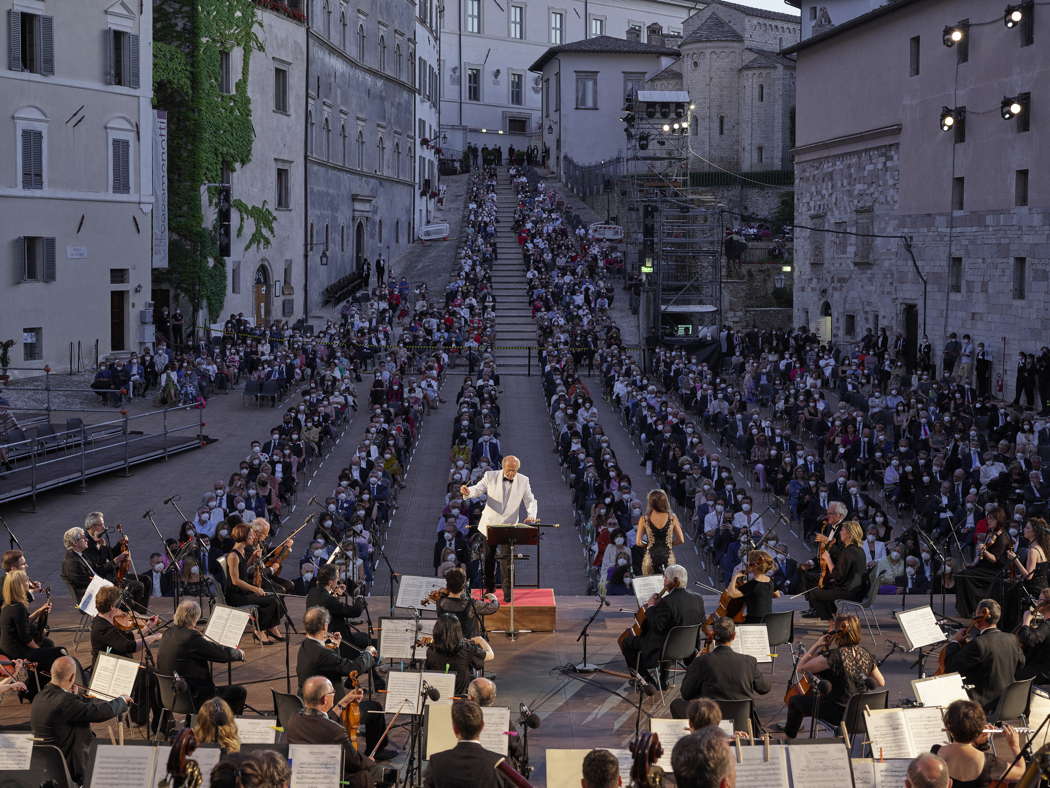
Iván Fischer and the Budapest Festival Orchestra at the Spoleto Festival. Photo © 2021 Giovanni Hanninen
I am not going into details here. The Budapest Festival Orchestra is a dazzling formation of which I have reviewed performances in the Hungarian capital, Salzburg, Milan, Ravenna, Rome and elsewhere. Like Mozart's Figaro, più nol dico - I have nothing to add.
Copyright © 29 June 2021
Giuseppe Pennisi,
Rome, Italy

FURTHER ARTICLES ABOUT SPOLETO


